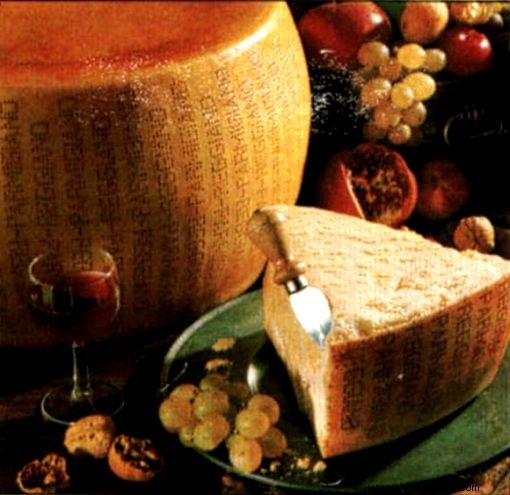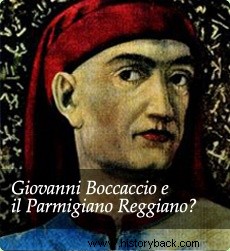
Parmigiano Reggiano
Yes, Parmigiano Reggiano , flagship of Italian gastronomy , boasts distant medieval origins, that Emiliano Amici , with accuracy and precision, retraces in the post following. The article is taken directly from his blog, sguardosulmedioevo.org. 
Giovanni Boccaccio, who named Parmigiano Reggiano in his “Decamerone”
Perhaps not everyone knows that Parmigiano has medieval origins , exactly in the 12th century:it was even Boccaccio, in the Decameron to name him, when, speaking of Bengodi, he described a mountain of grated Parmesan on which " people stood, who did nothing else "[1], what to make macaroni and ravioli". This testifies how in all probability Parmigiano existed even centuries before with a recipe very similar to the famous cheese “ Il Piacentino “, Just think that even Pliny and Martial they speak of a production of cheese right in the Cisalpine areas, brought through Luni after being branded with the symbol of the city, a Moon. The production technique it was very similar to the current one and thanks to the Benedictine monks, particularly skilled in agriculture, the swamps were reclaimed to make the areas suitable for important cultivation; just think that 500 liters of milk were needed to start production for only 30 kg of cheese! And so it was that just near the castles small buildings with a polygonal shape were born , the toll booths, suitable for the production of cheese. The monks discovered in their laboratories that by partially skimming the milk and heating it twice to a certain temperature it was possible to obtain a dry product, with little water and therefore easily conservable even for a long time. Parmigiano has always been a DOC product of Italian culture, and is still one of the most counterfeited today. [1] Taken from Giornata Ottava, Novella Terza from Boccaccio's Decameron: Calandrino, Bruno and Buffalmacco down the Mugnone are trying to find elitropy, and Calandrino believes he has found it; returned home laden with stones; his wife is proverbial, and he upset beats her, and tells his companions what they know better than him (Article written by Emiliano Amici for sguardosulmedioevo.org).
